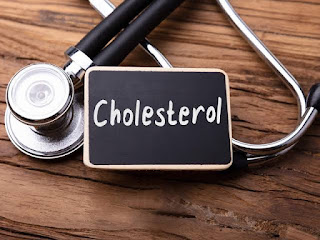What is cholesterol? How it can be controlled?
Cholesterol is synthesised in the liver which processes various important functions including, keeping the cell walls flexibles and make several hormones. It can also be consumed through food. Cholesterol is of two types, low- density lipoproteins (LDL) or bad cholesterol and high- density lipoproteins (HDL) or good cholesterol. 3MEDS, the best medicine app in India, explains the importance of cholesterol and its management.
Defining
cholesterol
Cholesterol doesn’t mix with water- based blood, as it
is oil- based substance. It travels in lipoproteins, around the body. Main
functions of cholesterol include, contribute to the structure of the cell
walls, make up digestive bile acids in the intestine, allows body to produce
vitamin D and enable the body to make few hormones.
High
cholesterol complications
·
Heart attacks
·
Chest pain
·
Diabetes
·
Liver or kidney diseases
·
Polycystic ovary syndrome
·
Pregnancy
·
Stroke
·
Underactive thyroid gland
·
Drugs like progestins, anabolic steroids
and corticosteroids
Risk
factors
Factors that may increase the chances of bad
cholesterol are-
·
Poor diet
·
Lack of exercise
·
Obesity
·
Smoking
·
Age factor
·
Diabetes
Cholesterol
control management
1. Monounsaturated
fats
It helps to reduce the oxidation of lipoproteins, that
contributes to clogged arteries. Consuming a diet with high monounsaturated
fat, increase beneficial HDL by 12% compared to diet low in saturated fat. Some
of the good sources of monounsaturated fat includes canola oil, avocados,
olives, olive oil and tree nuts like almonds, walnuts, pecans, hazelnuts and
cashews.
2. Polyunsaturated
fats
They are heart healthy and reduce the risk of
diabetes. Especially, Omega -3 fats hold extra heart benefits. These are found
in high amounts in fatty fish like salmon, mackerel, herring and deep sea tuna
like Bluefin or albacore. Also, in selfish to a lesser degree like shrimp.
3. Trans
fats
Avoid foods with ‘partially hydrogenated’ oil, as the
ingredients contain trans fats which are harmful. Read the ingredients labelled
in the nutrition list of the product, sometimes they mislead saying it serves
fat less than 0.5 grams or 0 grams.
4. Soluble
fiber
Eat soluble fibers which are a group of different
compounds in plants that dissolve in water. They nourished healthy probiotic
gut bacteria and removes cholesterol from the body by reducing LDL. Some of the
good sources include beans, peas, lentils, fruit, psyllium and whole grains
like oats.
5. Exercise
Schedule to practise exercise for minimum of 30
minutes for most days of the week. It will improve cholesterol and promotes
heart health. Intense the exercise, greater the benefit.
6. Weight
Losing weight can reduce total cholesterol. Though, it
is a doubt benefit on cholesterol by increasing beneficial HDL and decreasing
harmful LDL.
7. Smoke
Don’t smoke, as practicing it will increase bad
lipoproteins and decrease good HDL. It will hinder the body’s ability to send cholesterol
back to the liver to be stored or broken down. This effects can be reversed if
smoking is avoiding.
8. Alcohol
in moderation
Ethanol in alcoholic drinks will increase HDL and
reduce the risk of heart diseases. Consumption of 1- 2 drinks per day will
improve HDL cholesterol and reduce the risk of clogged arteries. Intake of
heavier alcohol will increase heart disease risk and harm the liver.
9. Plant
sterols and stanols
These are found in vegetable oil or margarines. Small
amounts are also found in certain oils and butter substitutes. They compete
with cholesterol absorption and reduce LDL by up to 20%.
10. Supplements
Fish oil supplements and soluble fiber supplements
like psyllium improve cholesterol and reduce the risk of heart disease.
Coenzyme Q10 supplements reduce total cholesterol levels. One can avail these
supplement from 3MEDS, the best healthcare service provider in India.
11. Laugh
Laughing is the best medicine, as it can increase HDL.
12. Stress
management
Relax yourself. Avoid the feeling of anxiety and
stress, as it may contribute to increased HDL.
13. Medications
Common choice of medications includes, statins, bile-
acid- binding resins, Cholesterol absorption inhibitors and injectable
medications.
Ending
note





Comments
Post a Comment